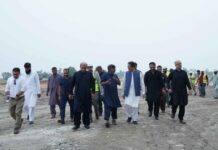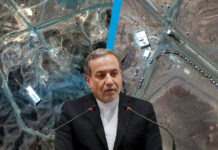With the upcoming general elections slated for February 8, there’s a buzz stirring in as internet access is set to face restrictions in certain “sensitive areas.” According to the caretaker provincial Information Minister Jan Achakzai, this precautionary measure aims to thwart potential security threats posed by terrorists who might exploit social media platforms for nefarious purposes during the polling process.
The Decision Behind Internet Restrictions
In a statement shared on social media, Achakzai shed light on the decision to temporarily suspend internet services in regions like Turbat, Mach, and Chaman. The rationale behind this move is clear: to safeguard citizens and maintain peace and order during this critical juncture in the nation’s democratic journey.

However, as with any significant decision, this move has elicited a spectrum of reactions from the public. While some individuals empathize with the need for heightened security measures, others express concerns over the possible disruptions this internet blackout might bring. From hampering communication channels to impacting business operations and impeding access to vital information, the implications are far-reaching.
Critics Voice Concerns
Critics, in particular, raise valid questions regarding the potential stifling of the free flow of information and the risk of disenfranchising voters who rely on online platforms for election-related updates and civic engagement. In an era where digital connectivity plays an increasingly pivotal role in shaping public discourse and political participation, any curtailment of internet access inevitably raises eyebrows.
Court Intervention
Adding another layer to the debate, the Sindh High Court has weighed in by instructing the federal government and the Pakistan Telecommunications Authority (PTA) to ensure uninterrupted internet access throughout the entire election period. This directive underscores the legal and logistical complexities surrounding the internet blackout in specific regions, sparking discussions about its enforceability and compliance with constitutional rights.

As Balochistan braces itself for the electoral showdown, the balancing act between security imperatives and democratic principles remains a delicate one. While the aim is to safeguard the integrity of the electoral process and protect citizens from potential harm, the challenge lies in finding a middle ground that upholds both security interests and fundamental rights, ensuring a fair and transparent election that reflects the will of the people.
Stay tuned to Brandsynario for more




































